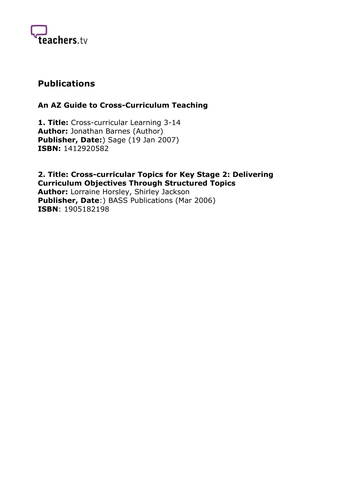
In ‘The Secondary A-Z Of…’, how do you combine maths, history, citizenship, science, drama and dance, amongst other subjects? Here, teachers agree that a risk is that you are working beyond your own subject specialism, and you need to work with colleagues to offer a really cross-curriculum project.
Cross-curriculum work needs to be relevant and meaningful, and if planned well can be an enriching and rewarding experience for both students and teachers. The teachers also consider what to do when cross-curriculum teaching goes wrong.
Starting with A for assessing, this film takes an alphabetical journey through the key issues affecting cross-curriculum teaching, and features eight teachers from across the UK sharing their tried and tested strategies for success. During the course of the programme, the teachers talk about the role they see creativity playing in cross-curriculum teaching and learning; the different ways in which they ensure that the cross-curriculum work involves shared experiences (including pretending to be a penguin); and how they try to develop their pupils’ transferable knowledge and skills. When it comes to linking, the message is 'never say never ’ (although the link must always be meaningful) and everyone agrees how important relevance is to cross-curriculum work. But what can go wrong with cross-curriculum teaching?
Something went wrong, please try again later.
Some useful ideas for cross curriculum linking in this film. I'd recommend speaking to primary school colleagues who are very adept at seeing cross curricular link opportunities.
Report this resourceto let us know if it violates our terms and conditions.
Our customer service team will review your report and will be in touch.
